August 2021 in “The Journal of Urology” Finasteride use is strongly linked to sexual dysfunction, especially in young men treating hair loss.
 October 2024 in “Journal of Education Health and Sport”
October 2024 in “Journal of Education Health and Sport” Alopecia areata treatment should be personalized, using topical or systemic therapies based on severity, with promising options like JAK inhibitors needing more research.
 December 2022 in “Dermatology and Therapy”
December 2022 in “Dermatology and Therapy” Alopecia areata needs more recognition and better treatment access in Latin America to improve patient care and outcomes.
 April 2024 in “Medical & clinical research”
April 2024 in “Medical & clinical research” More research is needed to find the best long-term treatments for Alopecia Areata.
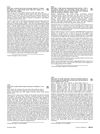 August 2018 in “Journal of the American Academy of Dermatology”
August 2018 in “Journal of the American Academy of Dermatology” Reflectance confocal microscopy helped diagnose and manage a woman's hair loss without needing a biopsy.
 20 citations,
February 2022 in “British Journal of Dermatology”
20 citations,
February 2022 in “British Journal of Dermatology” People with alopecia areata have a higher risk of depression and anxiety, and often face unemployment and work absences.
 16 citations,
February 2018 in “Journal of Cosmetic Dermatology”
16 citations,
February 2018 in “Journal of Cosmetic Dermatology” Carboxytherapy may help increase hair growth in alopecia patients but requires ongoing treatment.
 July 1980 in “Journal of The American Academy of Dermatology”
July 1980 in “Journal of The American Academy of Dermatology” The conference concluded that understanding hair and nail disorders is important, iron deficiency may be linked to hair loss, and while some treatments for skin conditions are effective, they may have risks and high costs.
 40 citations,
November 2020 in “JAMA Dermatology”
40 citations,
November 2020 in “JAMA Dermatology” Finasteride may cause suicidal thoughts and mental side effects, especially in young people with hair loss.
 3 citations,
November 2016 in “Clinical Pediatrics”
3 citations,
November 2016 in “Clinical Pediatrics” A girl with Crohn's disease developed hair loss from her medication, which improved with treatment but later returned.
 39 citations,
October 2018 in “Lupus Science & Medicine”
39 citations,
October 2018 in “Lupus Science & Medicine” Different types of hair loss in lupus need careful diagnosis for proper treatment.
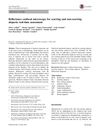 17 citations,
May 2016 in “Archives of Dermatological Research”
17 citations,
May 2016 in “Archives of Dermatological Research” Reflectance confocal microscopy can help tell apart scarring from non-scarring hair loss.
 May 2023 in “Aesthetic Plastic Surgery”
May 2023 in “Aesthetic Plastic Surgery” The document concludes that there are various surgical techniques for hair restoration, their success depends on the surgeon's skill, patient's health, and quality of donor hair, and they can potentially improve the mental well-being of those with hair loss.
 8 citations,
May 2017 in “Singapore Medical Journal”
8 citations,
May 2017 in “Singapore Medical Journal” A Korean woman with complete hair loss regrew her hair after taking tofacitinib, with no side effects.
 1 citations,
January 2019 in “Medical principles and practice”
1 citations,
January 2019 in “Medical principles and practice” A boy's hair loss improved after tumor removal and vitamin D treatment, but hair loss returned despite normal vitamin D and no tumor regrowth.
3 citations,
January 2021 in “Journal of dermatology & cosmetology” Current alopecia treatments manage symptoms but don't cure, and better treatments are needed.

Alopecia areata, a type of hair loss, may be passed through T cells and has genetic links, while treatments vary in effectiveness. Male pattern baldness can be treated with finasteride and is influenced by androgens in hair follicles.
 August 2007 in “Journal of Investigative Dermatology”
August 2007 in “Journal of Investigative Dermatology” The meeting discussed vitamin D3's role in fighting tuberculosis, potential treatments for skin conditions like psoriasis, and hair follicle regeneration as a possible solution for hair loss.
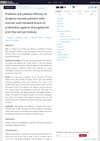 February 2024 in “Folia Medica”
February 2024 in “Folia Medica” Platelet-rich plasma treatment is effective for hair loss in patients regardless of their thyroid antibody levels.
 2 citations,
January 2021 in “Przegląd Dermatologiczny (1959)”
2 citations,
January 2021 in “Przegląd Dermatologiczny (1959)” The article discusses various treatments for different types of non-scarring hair loss.
56 citations,
October 2016 in “Journal of dermatological science” New insights into the causes and treatments for the autoimmune hair loss condition Alopecia areata have been made.
 100 citations,
July 2018 in “Journal of The American Academy of Dermatology”
100 citations,
July 2018 in “Journal of The American Academy of Dermatology” People with alopecia areata often have other health issues like skin diseases, metabolic syndrome, stomach infections, lupus, anemia, thyroid problems, mental health issues, vitamin D deficiency, and hearing and eye problems.
26 citations,
October 2016 in “American journal of clinical dermatology” New treatments like JAK inhibitors show promise for reversing alopecia areata.
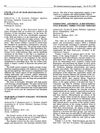 June 1997 in “The American Journal of Cosmetic Surgery”
June 1997 in “The American Journal of Cosmetic Surgery” The book "Color Atlas of Hair Restoration Surgery" provides useful information on hair restoration techniques, though some methods discussed may cause scarring.
January 2018 in “Springer eBooks” Alopecia totalis/universalis is a severe form of hair loss where all body hair is lost.
 11 citations,
October 2018 in “Pediatric dermatology”
11 citations,
October 2018 in “Pediatric dermatology” Leflunomide and anthralin may effectively treat severe alopecia areata.
 January 2024 in “International Journal of Homoeopathic Sciences”
January 2024 in “International Journal of Homoeopathic Sciences” Homeopathic treatment may help manage alopecia areata.
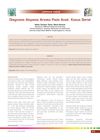 April 2022 in “Cermin Dunia Kedokteran”
April 2022 in “Cermin Dunia Kedokteran” Accurate diagnosis and understanding of alopecia areata in children are crucial for proper treatment.
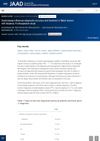 2 citations,
February 2023 in “Journal of The American Academy of Dermatology”
2 citations,
February 2023 in “Journal of The American Academy of Dermatology” Scalp biopsies greatly improved diagnosis and treatment for Black women with unclear alopecia.
 9 citations,
January 2017 in “Journal of the Egyptian Women's Dermatologic Society (Print)”
9 citations,
January 2017 in “Journal of the Egyptian Women's Dermatologic Society (Print)” Fungal infection was the main cause of hair loss in Egyptian children studied.
























